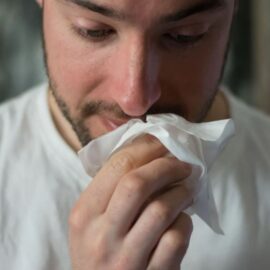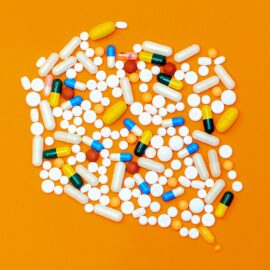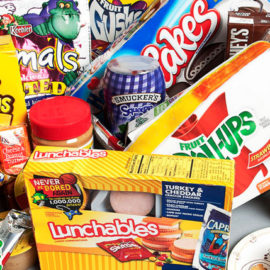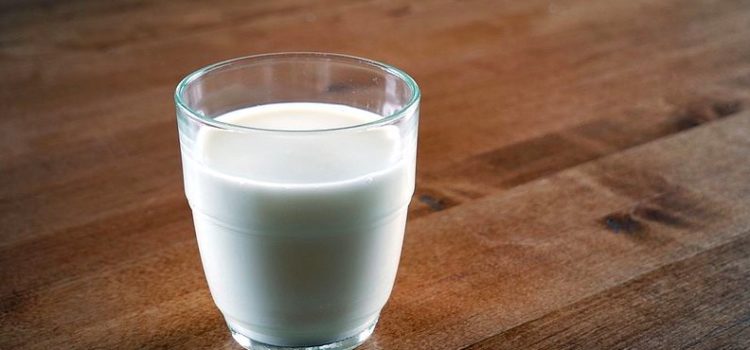
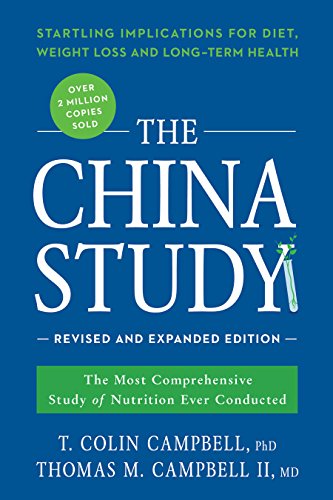
This article is an excerpt from the Shortform summary of "The China Study" by Colin Campbell. Shortform has the world's best summaries of books you should be reading.
Like this article? Sign up for a free trial here .
When you were a child, your parents probably told you to drink your milk for strong bones. Is that idea still current? Is milk good for your bones? What about the studies linking dairy and osteoporosis?
Although milk has a lot of calcium, dairy may not be the best way to protect your bones and prevent osteoporosis. Is milk bad for your bones? Yes. We’ll cover the two reasons.
Milk and Osteoporosis
The Calcium Myth
We all know that calcium builds strong bones. Americans consume more calcium, in the form of dairy products, than most people in the world. So our bones should be stronger than everyone else’s.
But they’re not. Americans age 50 and older have one of the highest hip fracture rates in the world. The few countries with higher rates, like Australia and New Zealand, eat more dairy than we do. How can this be?
Reason #1: Animal Protein in Milk Increases Acid in the Body
One reason milk causes osteoporosis has to do with its protein. Animal protein, like casein in milk, increases acid in the body. When our blood and tissues become more acidic, the body pulls calcium from our bones to neutralize the acid. This calcium loss weakens bones.
Studies suggest that 70% of fracture risk in women over 50 can be attributed to eating animal protein. Women who eat a lot of animal protein lose bone four times as quickly as those who get most of their protein from plants. More than 87 separate studies have found a link between animal protein and increased risk of bone fractures.
Further, populations that get most of their protein from plant sources have virtually no bone fractures.
So is milk good for your bones? It doesn’t look like it.
Reason #2: Calcium Decreases the Body’s Ability to Regulate Calcitriol, a Supercharged form of Vitamin D
A second reason dairy is linked to osteoporosis is that calcium disrupts calcitriol production. In a normally functioning system, calcitriol determines how much calcium we absorb from food and how that calcium is distributed in the body.
But if we take in too much calcium over long periods of time, calcitriol becomes less effective at managing calcium, and we may excrete more than we absorb.
Dairy contains both animal proteins, which produce acid, and high amounts of calcium, which can disrupt the body’s ability to properly use that calcium. Because of these two factors, eating dairy products may increase rather than decrease your risk of osteoporosis.
The link between milk and bone health has long been solid, but recent research is starting to question it. You do need calcium for strong bones, but don’t overdo it, and don’t get it from dairy. Here are some other ways to reduce your risk of osteoporosis.
Evidence-Based Ways to Minimize Your Risk
- Exercise. Most kinds of physical activity help increase your bone density.
- Get your calcium from plant sources, like beans, leafy vegetables, and non-dairy milks.
- Reduce your salt intake. Studies link high salt intake to osteoporosis risk.
What to Eat Instead
If you’re convinced of the link between milk and osteoporosis, you might want to cut dairy out of your diet. But how?
Four Discoveries
Not eating dairy is such a strange idea in America that most of us don’t take it seriously. But if you try it for a month, you might be surprised by the discoveries you make.
Discovery #1: Plant Milks and Plant Foods are Delicious
You may miss milk and cheese, but you’ll also discover some enticing new foods you wouldn’t have tried otherwise.
Discovery #2: It’s Not as Hard as You Thought it Would Be
Making such a huge dietary change isn’t necessarily easy, but many people—some over a period of days, some over months—find that the shift isn’t as dramatic as they expected.
Discovery #3: You Feel Good
In the first month, many people lose weight and gain energy. See if you can fit in a doctor’s visit and get blood work done before and after changing your diet. Odds are, you’ll see drops in cholesterol and blood pressure that match how healthy you feel.
Discovery #4: Not Eating Dairy Is Possible
Even if it’s just for a week, you’ll know you’re capable of surviving on a diet free of dairy products. From then on, you’ll see eating dairy as a choice rather than a necessity. Everyone can make this diet work for them.
In summary, is milk good for your bones? No. If you’re serious about preventing osteoporosis, cut dairy from your diet.
———End of Preview———

Like what you just read? Read the rest of the world's best summary of "The China Study" at Shortform . Learn the book's critical concepts in 20 minutes or less .
Here's what you'll find in our full The China Study summary :
- Why animal proteins (meat, milk) might cause cancer, diabetes, and other diseases
- Why the medical institution is structured to hide the truth about disease and food
- The precise diet you'll need to eat to live longer and feel happier

